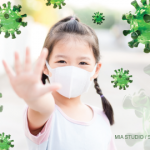 The emergence of COVID-19 in early 2020 led to an unprecedented disruption of rheumatology clinics and practices all over the world. In the U.S., many providers are implementing new systems for remote healthcare. Jay Mehta, MD, the director of the pediatric rheumatology fellowship program, associate program director of the pediatrics residency at The Children’s Hospital of Philadelphia and an associate professor of clinical pediatrics of the Perelman School of Medicine at The University of Pennsylvania, Philadelphia, spoke with The Rheumatologist (TR) about his experiences managing patient care during the pandemic.
The emergence of COVID-19 in early 2020 led to an unprecedented disruption of rheumatology clinics and practices all over the world. In the U.S., many providers are implementing new systems for remote healthcare. Jay Mehta, MD, the director of the pediatric rheumatology fellowship program, associate program director of the pediatrics residency at The Children’s Hospital of Philadelphia and an associate professor of clinical pediatrics of the Perelman School of Medicine at The University of Pennsylvania, Philadelphia, spoke with The Rheumatologist (TR) about his experiences managing patient care during the pandemic.
TR: What did you learn during the current pandemic?
Dr. Mehta: There are so many things I have learned during the pandemic. One of the things I have loved most about my job is the daily interaction I get to have with my patients, support staff, colleagues and trainees. However, I didn’t realize until the pandemic just how much I needed that daily interaction—until it was taken away.
I also learned just how flexible our patients, staff and colleagues are. Very quickly, we were able to pivot our clinic model to 95% telemedicine.
TR: What are you telling patients about the COVID-19 vaccination, and how are you using the ACR Vaccine Guidance/COVID-19 Guidance?
Dr. Mehta: I think much of it depends on what the actual vaccine looks like in terms of efficacy and safety. Assuming the efficacy and safety are both acceptable in clinical trials, I would advise my patients to get it as soon as possible.
The new ACR Vaccine Guidance and COVID-19 Guidance have been very helpful in terms of advising my patients and families. But I am biased—full disclosure—as I helped with creating those documents.
TR: How have changes to labs to allow social distancing affected the research process?
Dr. Mehta: The pandemic has definitely made it tougher to conduct research. My colleagues who have basic science labs have found it challenging to keep those labs as productive during this time. On the other hand, while clinical research data analysis can be done at home, it’s so much harder to recruit patients for studies when they aren’t in person. In addition, social distancing prevents the spontaneous, organic interactions and collaborations that are so critical to the research process.
TR: What are the current plans for continuing or ending telemedicine services?
Dr. Mehta: Telemedicine services are great, but there is no substitute for face-to-face interaction with a patient and their family—and getting to examine a child’s joints. Because we feel comfortable that the risk to staff and our patients is minimal with good personal protective equipment and hygiene, we have returned almost fully to in-person visits.




